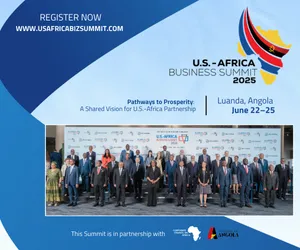These, he says, would lead to increased dividend payouts for quoted companies, and in turn impact positively on the performance of stocks and the market in general.
He adds that market performance in the first quarter was triggered by reduced foreign participation, weakened demand by domestic investors due to further hikes in the cash reverse ratio (CRR) on public sector funds in banks and the suspension of Sanusi Lamido as CBN governor.
Tola Odukoya of Dunn Loren Merrifield said the market has also suffered from the increase in political risk as indicated by the various security challenges currently facing the country.
“Our fiscal situation has equally not inspired confidence in investors, which is highlighted by Fitch’s revision of our credit outlook to ‘negative’ from ‘stable’. Still, the current state of the market presents a good opportunity for discerning investors,” he says.
More viewpoints
Mark Dike, president, Chartered Institute of Taxation of Nigeria, says multiple taxation is a disincentive to FDI. He says that some state and local governments request businesses to pay for registration of business premises and licensing of business premises, both of which, he says, are the same.
Samir Gadio, emerging markets strategist at Standard Bank Group, warns that drastic steps will be required to stop or reduce the erosion of foreign reserves and restore confidence in the Nigerian market: “A sharp tightening of monetary and liquidity conditions is urgently required if the CBN still wants to protect current dollar/naira levels.”
The CBN has also continued to provide dollars via its Retail Dutch Auction System (RDAS) window and resumed forex forward sales to reduce the immediate pressure on the currency. He explains that with a heavily managed currency regime, an unsustainable downward trend in foreign reserves is generally the prelude to devaluation.
Dr Abraham Nwankwo, director-general, Debt Management Office (DMO), said despite the drop in the reserves, Nigeria’s economic fundamentals remain strong compared to other frontier markets. He cited the relatively low debt-to-GDP ratio and budget deficit as a plus for the economy.
He believes that the economy will remain buoyant, especially as inflation remains single digit and GDP growth rate is 6-7% annually, pointing to an economy that is still positively comparable to its peers.
Way out
Dr Kingsley Moghalu, CBN Deputy Governor Operations, suggested taxing FDIs and other capital transfers to check capital reversals by short-term investors.
He said the CBN and other emerging markets are worried over the ‘Faustian bargain’ with short-term portfolio investors and therefore looking at explicit measures to stem capital outflows in the wake of the US Federal Reserve’s quantitative easing programme.
He wants Nigeria to direct FDI according to its own priorities, not according to the interests of foreign investors. He points out the country will not move into prosperity until it has developed a strong manufacturing base driven by information technology.
Banke Akanni, head of Transfer Pricing at Federal Inland Revenue Service (FIRS), calls for a pricing regulation that ensures that profits from foreign direct investments are not unnecessarily taken out of Nigeria.
“We are talking about the documentation requirement of the Nigerian pricing regulation. We want to ensure that profits are not shifted out of the country because developing economies like ours need a lot of revenue,” she says.
Despite these hitches, analysts seem to agree that the second quarter looks more positive with the Senate’s approval of Godwin Emefiele as the new CBN governor.
When he took over at the CBN at the beginning of June, the expectation was that he would stabilise the investment climate by keeping tabs on inflation and the exchange rate.
Want to continue reading? Subscribe today.
You've read all your free articles for this month! Subscribe now to enjoy full access to our content.
Digital Monthly
£8.00 / month
Receive full unlimited access to our articles, opinions, podcasts and more.
Digital Yearly
£70.00 / year
Our best value offer - save £26 and gain access to all of our digital content for an entire year!

 Sign in with Google
Sign in with Google 





